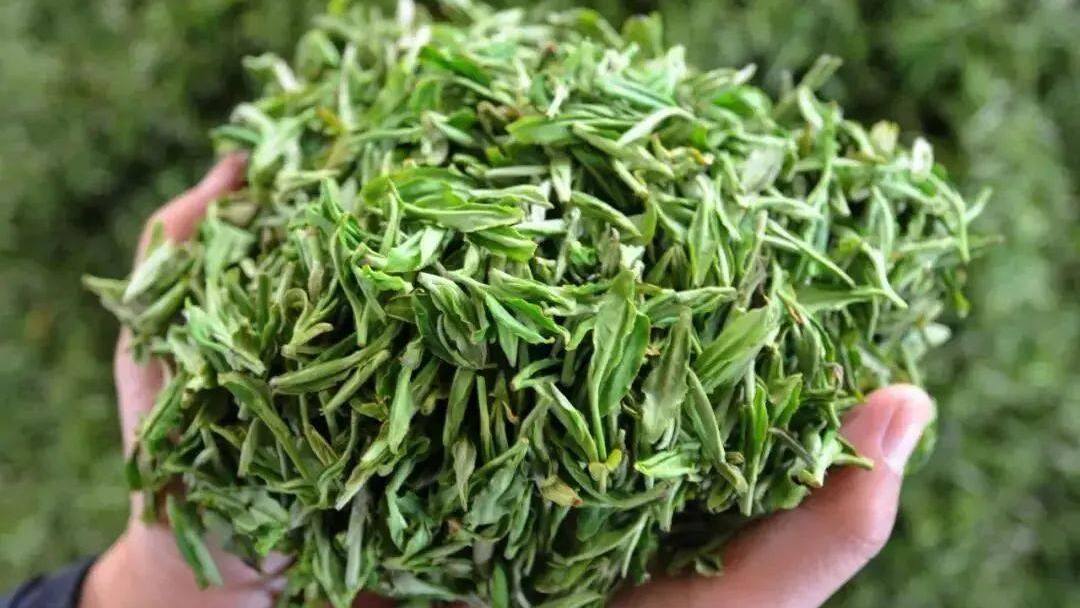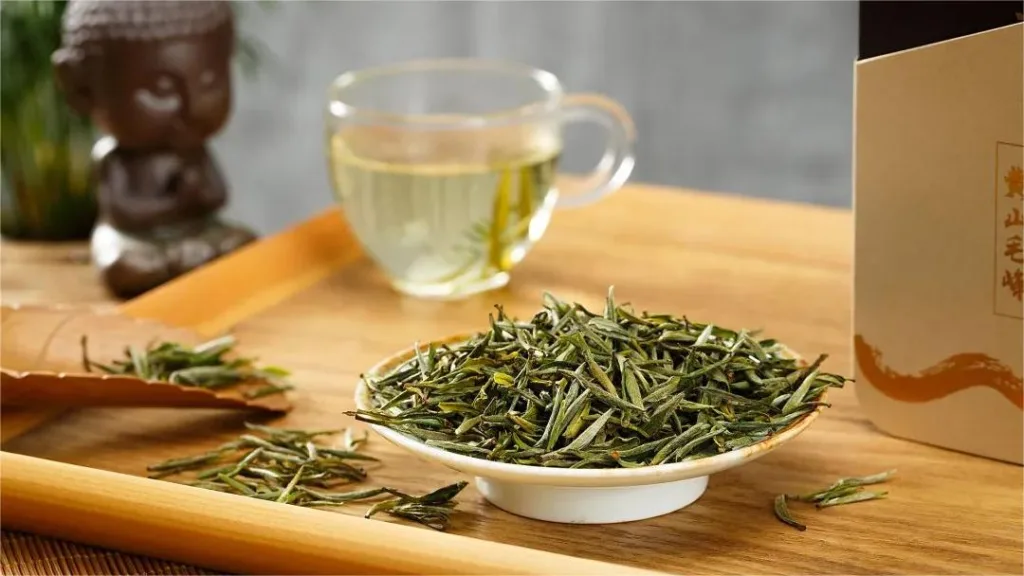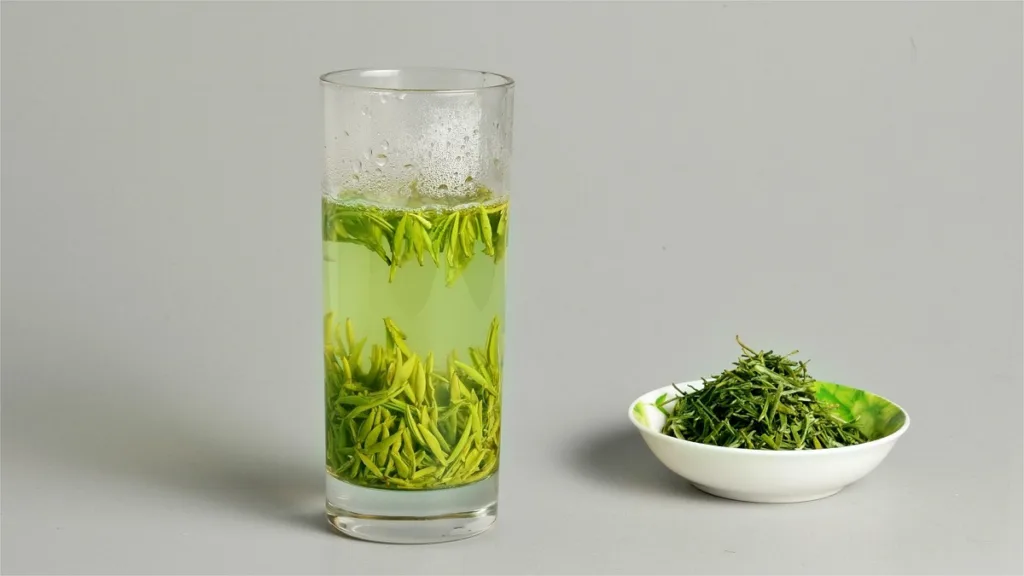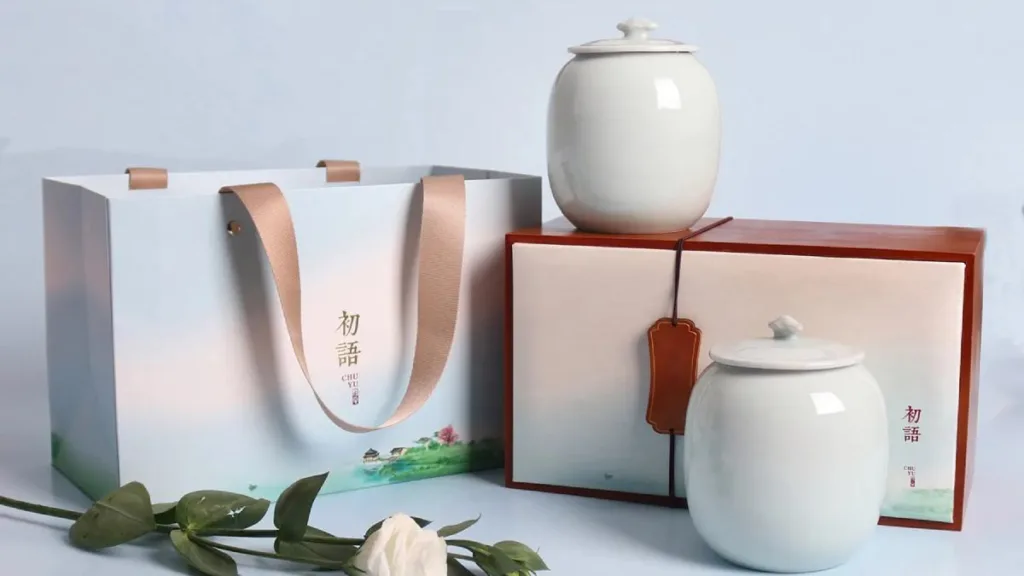Lushan Cloud Mist Tea, often known as Lushan Yunwu Tea, is a cherished traditional Chinese tea, a distinguished member of the country’s esteemed tea family, and a prominent variety among green teas. Originally a wild tea, it was later cultivated by the renowned monk Huiyuan of the Donglin Temple. Its roots trace back to the Han Dynasty when it earned the distinction of being designated as a “tribute tea” during the Song Dynasty. The tea takes its name from the Lushan Mountains in Jiujiang, Jiangxi Province, China. Lushan Cloud Mist Tea boasts lush, vibrant tea buds, tightly rolled and elegantly shaped leaves, a fresh and enduring fragrance, a mellow and sweet taste, a clear and bright infusion, and uniformly tender green tea leaves. The tea is often described with the “Six Uniquenesses,” which are: thick and sturdy tea buds, abundant verdant tea tips, a clear and bright liquor color, uniformly tender leaves, a long-lasting, refreshing aroma, and a mellow and sweet taste. Its unique flavor is the result of the cool, misty climate and the limited exposure to direct sunlight on Lushan Mountain, which leads to thicker leaves, abundant tea tips, and a taste that is both mellow and enduring.
History
Tea cultivation on Lushan Mountain has a long and storied history. As far back as the Han Dynasty, tea trees were already being cultivated in this region. According to records in the “Lushan Annals,” during the Eastern Han Dynasty, the introduction of Buddhism to China led to the establishment of over 300 Buddhist monasteries and temples on Lushan Mountain. Monks and devotees gathered in this sacred land, where they ventured into precarious cliffs and braved gushing springs to pick wild tea leaves. They planted tea trees in hidden valleys, nurtured them, and harvested tea leaves. During the Eastern Jin Dynasty, Lushan Mountain had become a significant center of Buddhism. It is recorded that the venerable monk Huiyuan resided on the mountain for over thirty years, gathering disciples, lecturing on Buddhist teachings, and promoting tea cultivation in the region.
During the Tang Dynasty, Lushan Mountain’s tea had already gained recognition. The famous Tang poet, Bai Juyi, once traveled to the peaks of Lushan to pick medicinal herbs and plant tea. He wrote: “Beneath the towering pine trees, by the babbling brook, fawns graze wearing white cloths. Medicinal herbs and tea gardens are my livelihood, the forest teems with deer and cranes, such is my company.” By the time of the Song Dynasty, various renowned teas from Hongzhou, such as Heling Tea, Shuangjing Tea, Bailu Tea, and Yingzhao Tea, had already been established. Although the appearance of Lushan Cloud Mist Tea in this period is not explicitly documented, one can infer its existence from the verses of Huang Tingjian, a Northern Song poet. His poetry refers to tea as follows: “In my home in southern Jiangnan, I pick the finest white, finer than snow.” This “finest white” is believed to allude to tea leaves, with their abundant white tips. It seems that teas with white tips existed during the Song Dynasty. By the time of the Ming Dynasty, the name “Lushan Cloud Mist Tea” is already recorded in the “Lushan Annals,” indicating that Lushan Cloud Mist Tea has a history of at least over 300 years.
With the ascendancy of Zhu Yuanzhang to the throne, Lushan Mountain’s fame further blossomed. Lushan Cloud Mist Tea has been produced since the Ming Dynasty and quickly gained nationwide recognition. In 1982, it was among the top twenty-one teas assessed in Jiangxi Province, earning its place as one of the eight famous teas of Jiangxi. That same year, it was established as one of China’s famous teas.
Brewing Method
- Tea-to-Water Ratio: The recommended tea-to-water ratio is approximately 1:50, meaning about 3 grams of dry tea leaves for 150 milliliters of water.
- Water Temperature: Water at around 85 degrees Celsius (185 degrees Fahrenheit) is ideal for brewing Lushan Cloud Mist Tea. This temperature range ensures a bright, mellow, and sweet flavor.
- Steeping Times: With the right amount of tea leaves, it is recommended not to steep the tea more than three times. During the first steep, around 50% of soluble substances are extracted, followed by approximately 30% during the second steep and around 10% during the third. Lushan Cloud Mist Tea’s “sturdy” tea buds make the “top down” pouring method particularly suitable. This means adding boiling water to your cup or pot before placing the tea leaves. In glassware, you may observe some tea leaves sinking straight down, while others hover gently before gradually sinking. This is known as the “tea dance.” Before long, the dry tea absorbs moisture, slowly unfurls its leaves, revealing one bud and one leaf. Meanwhile, a fragrant tea aroma rises with the steam on the tea surface.
Health Benefits
- Anti-Aging: Lushan Cloud Mist Tea contains a significant amount of tea polyphenols, which act as scavengers for free radicals in the body. These polyphenols also possess strong antioxidant properties and physiological activities, making regular consumption of Lushan Cloud Mist Tea effective in slowing down the aging process.
- Fatigue Relief: With its aromatic oils, Lushan Cloud Mist Tea can invigorate the spirit and alleviate fatigue. It promotes metabolism, helping to relieve tiredness and revitalizing the body.
- Diuretic Effects: Lushan Cloud Mist Tea helps eliminate excess lactic acid in urine, improving kidney efficiency and acting as a diuretic.
- Antimicrobial and Detoxification: The tea is rich in tannins and vitamins, facilitating digestion and acting as an antimicrobial and detoxification agent. It helps prevent gastrointestinal infections.
In conclusion, Lushan Cloud Mist Tea is a testament to China’s rich tea culture, showcasing a history that spans centuries. Its unique flavor profile, the result of its cultivation in the misty Lushan Mountains, coupled with its numerous health benefits, make it a prized gem in the world of Chinese teas. Whether you savor it for its exquisite taste or appreciate it for its health benefits, Lushan Cloud Mist Tea is a remarkable tea that continues to delight and nourish tea enthusiasts around the world.



